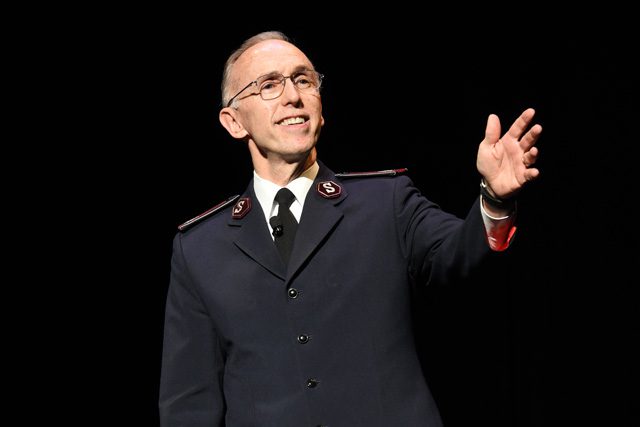Letters from London

by Will Pratt –
I looked in astonishment at the advert in the Thanksgiving issue of New Frontier. Could it really be true? The Western Territory urgently appealing for Salvation Army bonnets? Had the age of enlightenment for which old timers have long argued at last arrived?
I recalled from the ’80s the inter-territorial rivalry extolling the virtues of the West’s commander-style hat compared with the bowler style of others. Could I forget the discipline of one British-born training principal who taught women cadets collectively to place hand on hat, together and rhythmically, to ensure none fell off when bending to pick up objects from the floor at Commissioning times?
Was Catherine Booth’s chosen headpiece to be revived? No, not so. The bonnets were requested only for the Tournament of Roses parade. For an occasion when The Salvation Army is seen worldwide on television by millions more people than at any other time, the marching ladies would parade in the time-honored bonnet.
It would seem, as with several other practices, we cherish the glories of the past but not their present-day discomforts and impracticalities.(like open-air meetings, for example).
The same point is perceptively made by Lord Roy Hattersley, a British politician turned writer, about his brilliant study of William and Catherine Booth, published some months ago in London. Writing in “The Guardian,” (an article reprinted by Salvationist), Hattersley said: “Although generally admired, the Sally Ann is much misunderstood. Until I began to work on a biography of William Booth all I knew about its modernization was the replacement of its straw bonnets with unbecoming felt hats…
“In practical ways the Army has certainly begun to move with the more prosperous times. But the transition has not been easy…Part of the problem is the uniform and the slightly absurd ranks. But they are also the Army’s greatest strength–the visible proclamation of fixed principles in a time of shifting values. They are essential to a process called bearing witness and, as any public relations consultant would confirm, that is about as unfashionable an occupation as it is possible to promote.
“Whenever I see The Salvation Army on parade I ask myself who is benefiting from the banging drums. The answer is the men and women who bang them. They know whose side they are on. In the case of The Salvation Army it is the side of God and the poor.
“The question now is whether or not it is possible to preserve the old values and survive in a new world. If anyone can do it, The Salvation Army can. What they stand for is so right and true that it is bound to prevail.”
*”Blood and Fire–William and Catherine Booth and Their Salvation Army,” by Roy Hattersley, published by Little, Brown and Company (UK). The writer has been Visiting Fellow of Harvard’s Institute of Politics and of Nuffield College, Oxford.
He is a Visiting Professor of Politics at Sheffield University. He was elected to the British Parliament in 1964 and served in each of Harold Wilson’s governments and in Jim Callaghan’s Cabinet. In 1983 he became deputy leader of the Labor Party.










